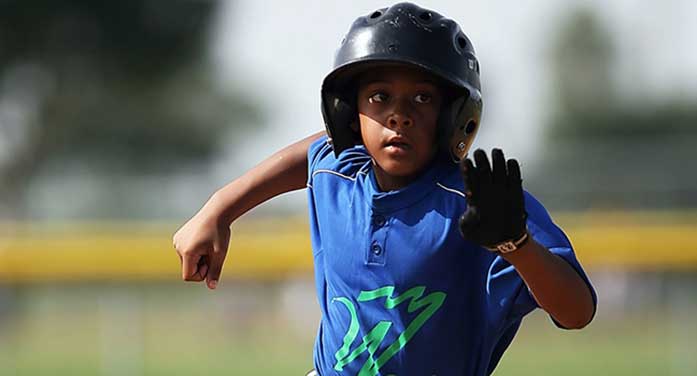 When people ask me what I think about youth sports today, I often say there’s “too much adult in youth sports.” When adults are heavily involved in youth sports, ego-and-greed-based decisions and activities are sure to be part of the environment.
When people ask me what I think about youth sports today, I often say there’s “too much adult in youth sports.” When adults are heavily involved in youth sports, ego-and-greed-based decisions and activities are sure to be part of the environment.
Win-at-all-costs (WAAC) and profit-at-all-costs (PAAC) mentalities and policies are increasingly part of the youth sports landscape, as youth sports entrepreneurs (aka youth sports vultures) are lurking and preying on the dreams of young athletes and their parents. We are seeing more “showcase” tournaments, more travel teams, more year-round club teams, more sport-specific trainers for young kids, etc.
These trends are pricing out kids in lower socio-economic areas, and placing unnecessary – and potentially damaging – physical and mental pressure on young people.
 |
| Related Stories |
| Well-rested kids are healthier, happier and more successful
|
| Making a strong case for more phys-ed in Canadian schools
|
| Coaches at all levels treat fun as a negative. It’s not |
Youth sports vultures are commercializing and professionalizing youth sports for kids as young as eight. Is there any wonder that nearly 80 per cent of kids drop out of organized team sports by the age of 13?
We have written extensively in the past about the importance of our children being physically active. That is especially true given that the Covid pandemic has resulted in our kids leading increasingly sedentary lives.
The physical benefits of sports participation and other physical activities can’t be overstated. Our young people need more exercise, especially cardiovascular-based exercise.
That said, some potential psychological dangers are lurking for kids in youth sports environments. Here are a few psychological risks to look for as a parent:
Dehumanizing Coaching – It’s important to ensure your son or daughter has a coach that prioritizes holistic development and fun over winning at all costs. There aren’t as many Vince Lombardi-type, kick-‘em-in-the-butt youth coaches as there were 25 years ago, but they are still out there. One season with a tyrannical coach could lead to your child dropping out of organized youth sports for good.
Talk to other parents about particular coaches and go to early practices. If you see a coach humiliating the young players on the team, get your kid out fast.
Overbearing Parents – Don’t be that parent! Too many parents have their egos invested in their child’s athletic performance. Over-the-top parents scream at their kids for on-field/on-court mistakes. They spend the ride home from games critiquing their kid’s performance. Remember, the number one reason kids cite for quitting organized sports is adults (parents and coaches) that make playing sports no fun. These are kids, not pro athletes.
Also, according to the U.S. National Alliance for Youth Sports, approximately 15 per cent of youth sports games involve a confrontation between parents, between parents and officials, between parents and coaches, or between coaches and officials. Kids hate witnessing these “adult” confrontations.
Showcase Tournaments and Travel Leagues – Too many parents are focused on getting their kids athletic scholarships for college. That’s not a bad thing in and of itself. But it’s critical to keep that desire in perspective.
According to the U.S. National Center for Education Statistics, only about one per cent of U.S. eighth graders will end up receiving some financial aid to play NCAA Div. I athletics. That includes partial scholarships. The percentage receiving full athletic scholarships is even smaller.
When it comes to playing sports professionally, the odds are even steeper. The NCAA estimates that only 3/100ths of one per cent of male high school basketball players and 9/100ths of one per cent of high school football players will play their sport professionally. The figures are even bleaker for girls. For example, only 2/100ths of one per cent of all high school female basketball players will play pro ball.
So, when it comes to youth sports, let’s all relax a little, and more importantly, let our kids relax.
Ken Reed is sports policy director for League of Fans (leagueoffans.org), a sports reform project. He is the author of The Sports Reformers, Ego vs. Soul in Sports, and How We Can Save Sports.
For interview requests, click here.
The opinions expressed by our columnists and contributors are theirs alone and do not inherently or expressly reflect the views of our publication.
© Troy Media
Troy Media is an editorial content provider to media outlets and its own hosted community news outlets across Canada.

